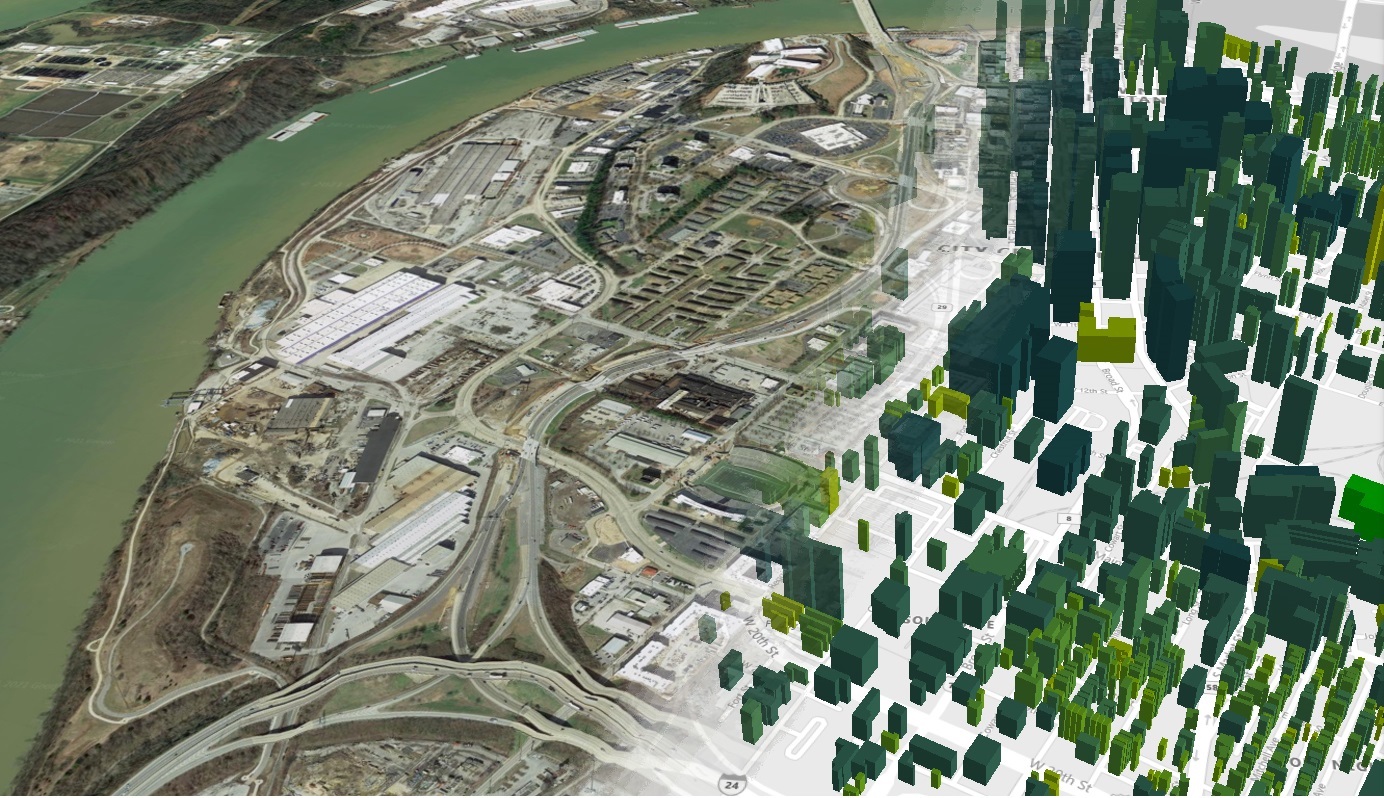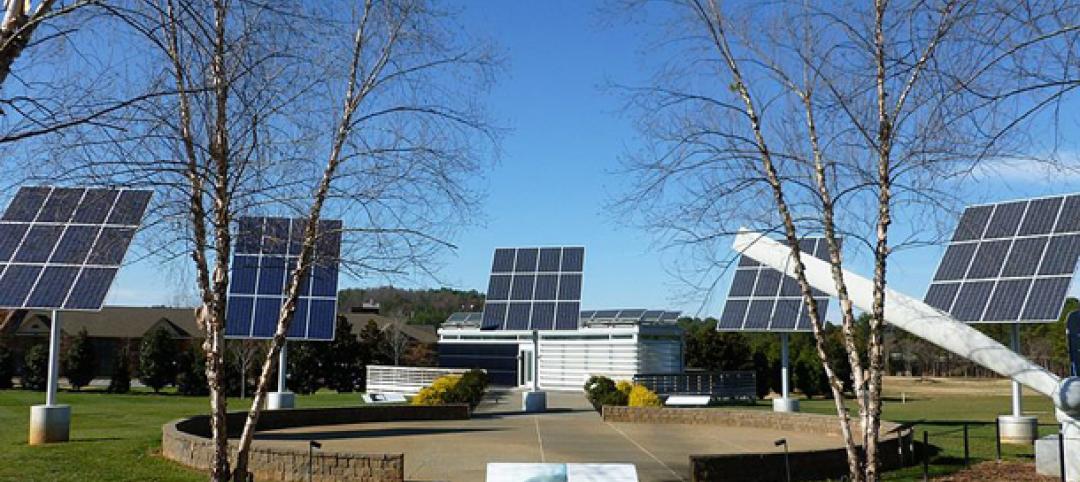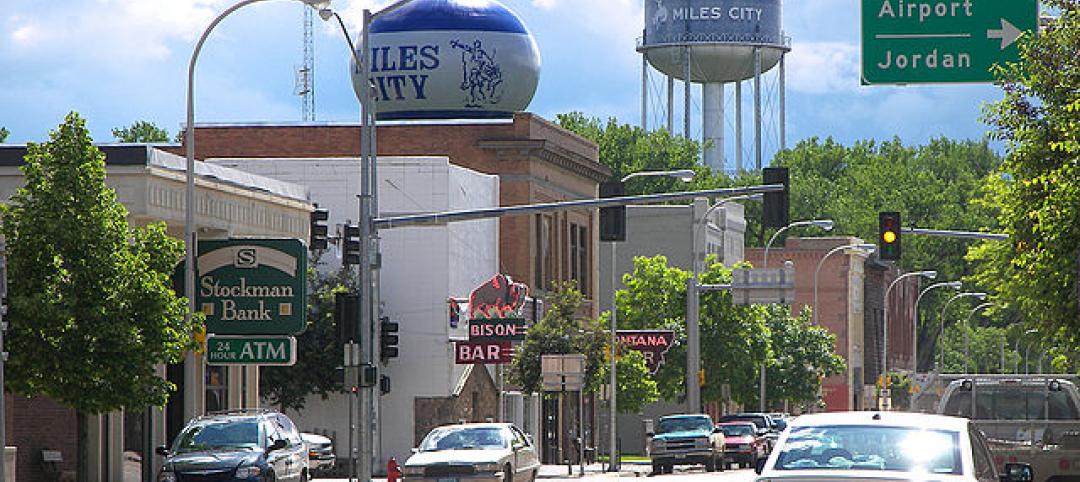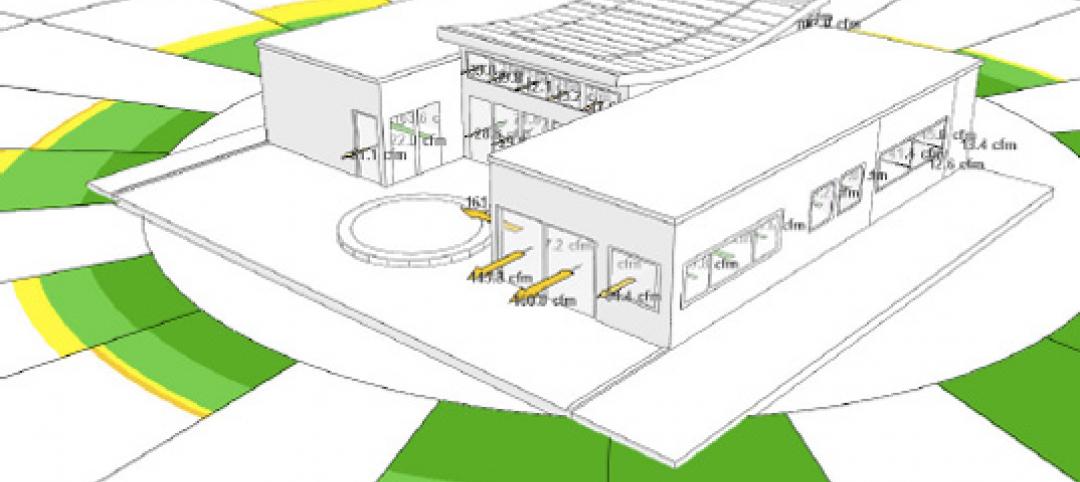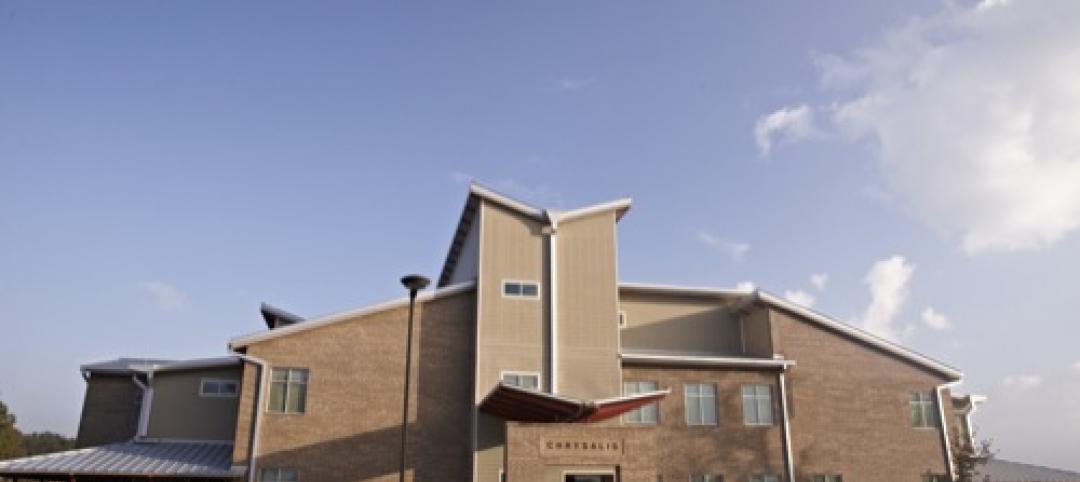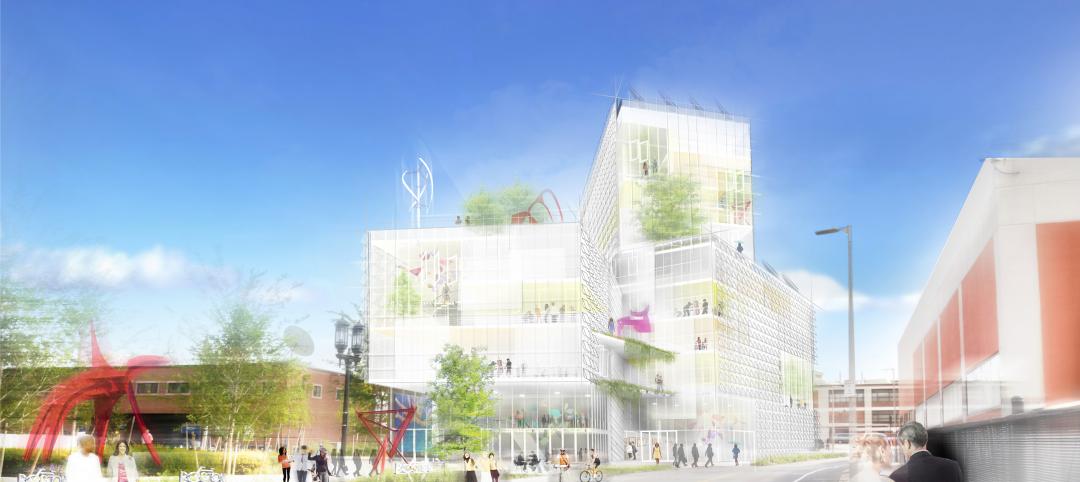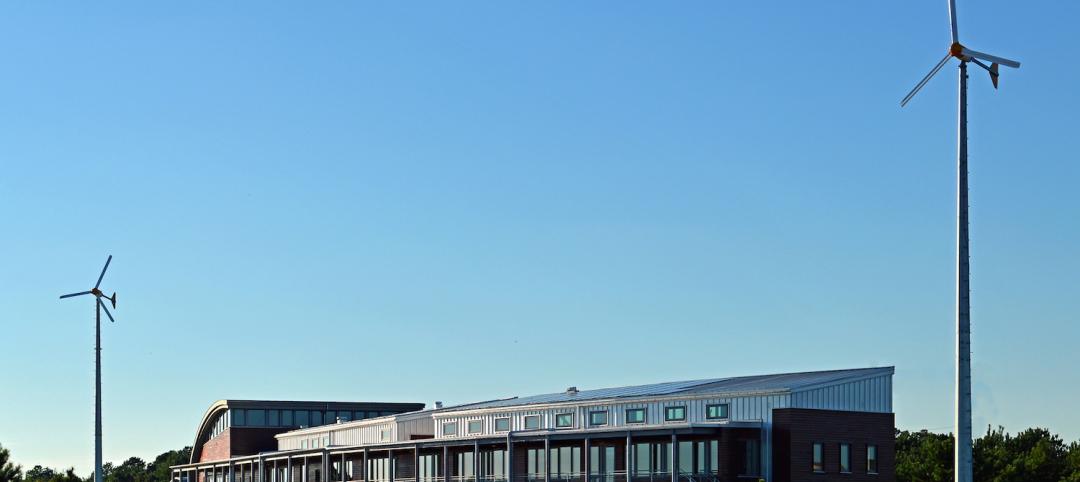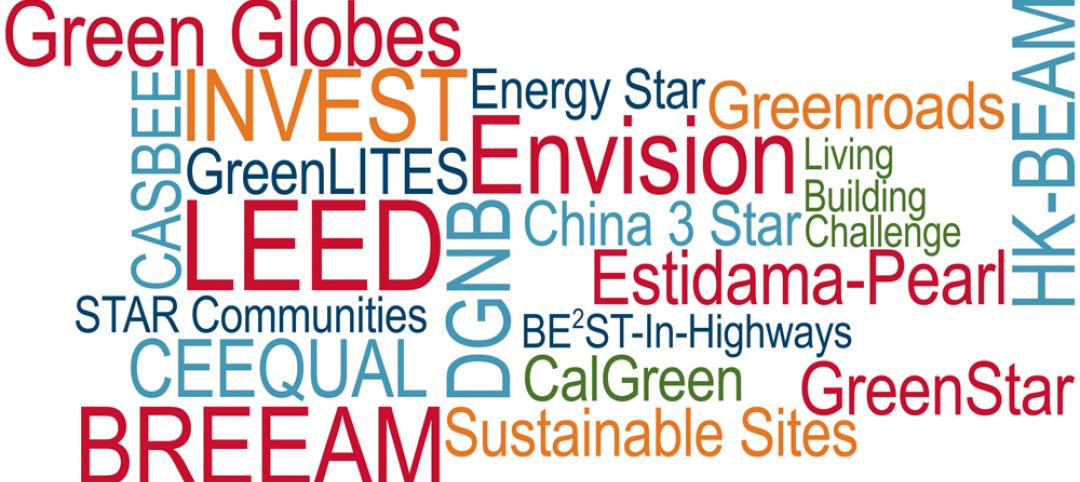Within the next five years, the AE firm SmithGroup wants to be able to incorporate the highest level of energy efficiency into every project it designs and builds. But the challenge is selecting the right energy model from literally thousands of options.
“The number of buildings we need to touch, and the pace we need to do it, exceed what an individual could do in a lifetime,” says Stet Sanborn, engineering lead in SmithGroup’s San Francisco office.
To speed this process, SmithGroup has partnered with the U.S. Department of Energy’s Oak Ridge National Laboratory (ORNL), whose Automated Building Energy Modeling software suite, better known as AutoBEM, has simulated the energy use of 123 million structures, or 98 percent of U.S. Buildings.
AutoBEM was developed using high-performance computing to process layers of imaging data with information about each building, such as its size, use, construction materials, and HVAC technologies. The goal was to create a digital twin of the nation’s buildings, says Joshua New, ORNL’s project leader.
Sanborn tells BD+C that SmithGroup got involved with this technology collaboration project 18 months ago, after responding to the lab’s request for proposal. After six months of planning, SmithGroup provided information for every building type it handles, including climate zones, footprints, orientation, and envelope construction. The modeling also took into account lighting and HVAC variations.
This project generated more than 200,000 building iterations and 250,000 energy models. The computation, which took less than an hour to complete, was equal to the output of one employee working full time for 365 years.
Using AI to spot trends
AutoBEM’s information was used to train an artificial intelligence tool that will allow SmithGroup to pre-simulate the energy impact of every design possibility for any building.
Sanborn says that these data sets are still pretty rudimentary, so they should benefit from ORNL’s plans to update its information this year. “We’re looking for much better resolution, so we can eventually have real-time and predictive feedback,” he explains.
In 2023, SmithGroup plans to train the AI bots to spot trends and choose the best energy-efficient iteration for a given project. Sanborn says his team has already been surprised by how the data has highlighted “the interaction of things” like glass U-values and wall R-values. More refined data, he predicts, should make these data sets more accessible and actionable. (Sanborn says that SmithGroup already has pre-simulated climate data for every market it builds in.)
The first new designs for which this energy modeling is likely to be applied could be for a civic or higher education building, says Sanborn, where no restrictions to sharing information exist.
ORNL’s partners such as SmithGroup and Google—which is using AutoBEM to improve its free Environmental Insights Explorer tool—have committed to sharing data sets created by using AutoBEM. Some data sets have already been posted, and Sanborn thinks that open-source access is important because “SmithGroup can’t build every building, as much as we’d like to. We don’t want to hold a secret sauce or limit everyone’s ability to drive efficiency in response to what is really a climate emergency.”
SmithGroup participated in the funding of AutoBEM, whose development, expansion and collaborations are also funded by DOE’s Office of Electricity, the Energy Efficiency and Renewable Energy’s Building Technologies Office and the National Nuclear Security Administration. The research team leveraged supercomputing resources from Argonne National Laboratory.
Related Stories
| Jan 7, 2015
Department of Energy seeks public input on definition for zero-energy buildings
A broadly accepted market definition of zero-energy buildings is foundational to efforts by governments, utilities, or private entities to recognize or incentivize zero energy buildings.
Smart Buildings | Jan 7, 2015
NIBS report: Small commercial buildings offer huge energy efficiency retrofit opportunities
The report identifies several barriers to investment in such retrofits, such as the costs and complexity associated with relatively small loan sizes, and issues many small-building owners have in understanding and trusting predicted retrofit outcomes.
| Dec 28, 2014
Using energy modeling to increase project value [AIA course]
This course, worth 1.0 AIA LU/HSW, explores how to increase project value through energy modeling, as well as how to conduct quick payback and net present value studies to identify which energy strategies are most viable for the project.
| Dec 19, 2014
Zaha Hadid unveils dune-shaped HQ for Emirati environmental management company
Zaha Hadid Architects released designs for the new headquarters of Emirati environmental management company Bee’ah, revealing a structure that references the shape and motion of a sand dune.
| Dec 17, 2014
USGBC announces 2014 Best of Green Schools honorees
Houston's Monarch School was named the K-12 school of the year, and Western Michigan University was honored as the top higher-ed institution, based on environmental programs and education efforts.
| Nov 25, 2014
Behnisch Architekten unveils design for energy-positive building in Boston
The multi-use building for Artists For Humanity that is slated to be the largest energy positive commercial building in New England.
| Nov 12, 2014
Chesapeake Bay Foundation completes uber-green Brock Environmental Center, targets Living Building certification
More than a decade after opening its groundbreaking Philip Merrill Environmental Center, the group is back at it with a structure designed to be net-zero water, net-zero energy, and net-zero waste.
| Oct 27, 2014
Report estimates 1.2 million people experience LEED-certified retail centers daily
The "LEED In Motion: Retail" report includes USGBC’s conceptualization of the future of retail, emphasizing the economic and social benefit of green building for retailers of all sizes and types.
| Oct 15, 2014
Harvard launches ‘design-centric’ center for green buildings and cities
The impetus behind Harvard's Center for Green Buildings and Cities is what the design school’s dean, Mohsen Mostafavi, describes as a “rapidly urbanizing global economy,” in which cities are building new structures “on a massive scale.”
| Sep 15, 2014
Sustainability rating systems: Are they doomed?
None of the hundreds of existing green building rating systems is perfect. Some of them are too documentation-heavy. Some increase short-term project cost. Some aren’t rigorous enough or include contentious issues, writes HDR's Michaella Wittmann.


